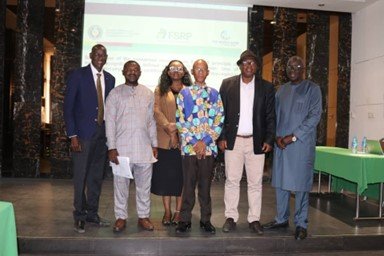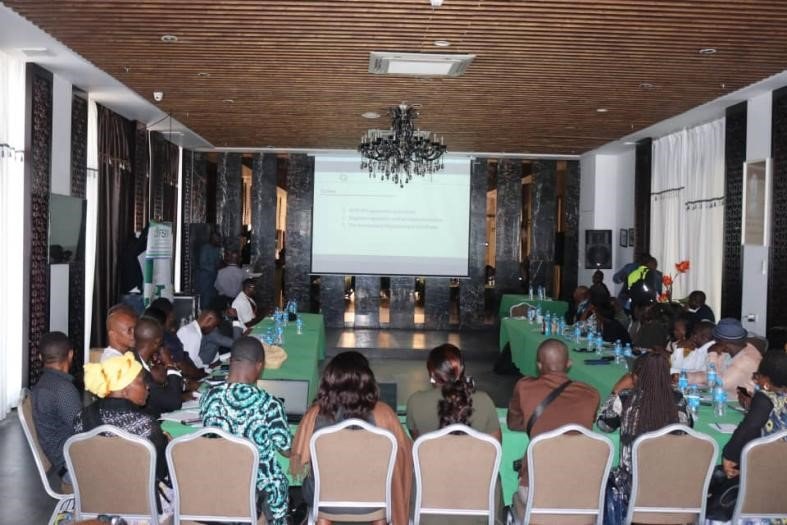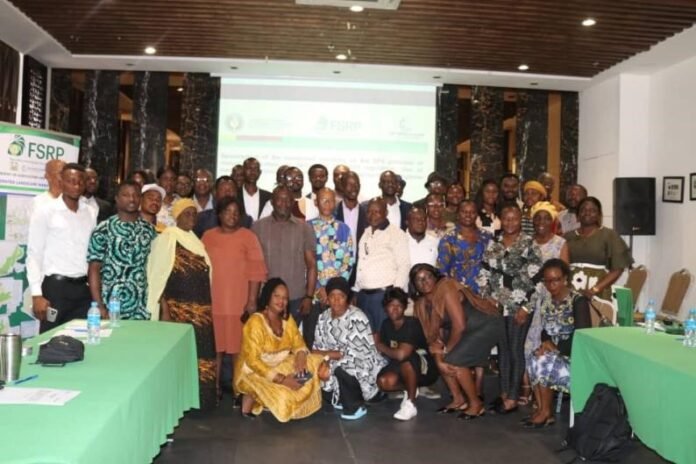The Food Systems Resilience Program (FSRP), in collaboration with the Ministry of Agriculture and Food Security (MAFS) and the Ministry of Trade and Industry (MTI), convened a one-day sensitization workshop on June 24, 2025, at the Atlantic Hotel, Lumley in Freetown. The event brought together cross-border stakeholders in trade, agriculture, and health geared towards promoting awareness and adoption of the ECOWAS harmonized phytosanitary certificate and related agri-food trade protocols.
The initiative seeks to reduce technical trade barriers and enhance access to national and regional markets by ensuring compliance with standardized regulations. The harmonized phytosanitary certificate—now digitized and recognized across ECOWAS member states—is valid for 12 months and is essential for the safe movement of agricultural goods.
Professor Abdulai Jalloh, Director General of MAFS, emphasized that although Sierra Leone is producing substantial amount of food, the economic benefits are not fully realized due to food safety issues, informal and illegal trade across borders. He noted that many traders act unknowingly, lacking awareness of cross-border trade guidelines. The Ministry, he said, is committed to disseminating these protocols, working closely with MTI to ensure producers and traders comply with safe trade requirements under ECOWAS frameworks.
FSRP Project Manager, Dr. Kepifri Lakoh, reaffirmed the program’s commitment to supporting safe, structured trade across the region. He praised the leadership of MAF and MTI for supporting relevant public and private actors understand the guidelines and stressed FSRP’s continued support to MTI and MAFS in building the foundation for safe and competitive agri-food trade at national and regional levels.
Chief Director of MTI, Emmanuel Konjoh underscored the effort made in harmonizing trade policies and creating safer environment for traders to freely move their businesses across ECOWAS countries. Despite the effort, he said education around protocols and guidelines for border-crossing trades require robust sensitization. Hence, he praised FSRP for supporting the MAFS and MTI is rolling out this initiative.
Isata S. Hamzie of the National Revenue Authority, a participant in the workshop, pledged to share the knowledge with traders at her assigned border crossing. She urged other stakeholders to do the same to ensure traders understand their obligations regarding required documentation and tariff at border points.
Participants provided key recommendations to both ECOWAS and the Government of Sierra Leone to ensure successful implementation of the initiative. These included strengthening awareness campaigns, improving inter-agency coordination, and deploying digital tools at border posts. The recommendations were accompanied by actionable steps aimed at minimizing trade barriers and fostering inclusive regional trade.






